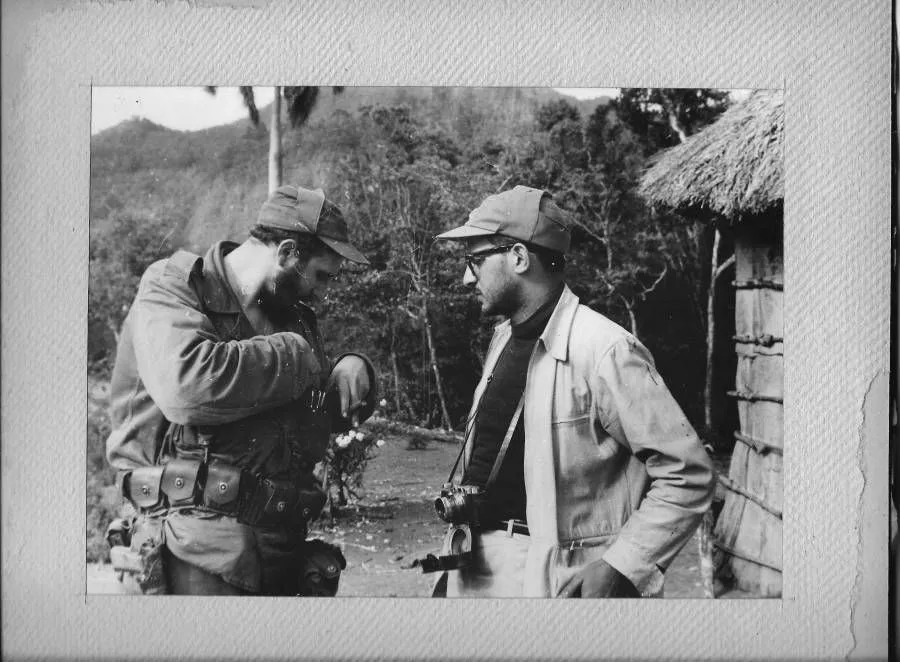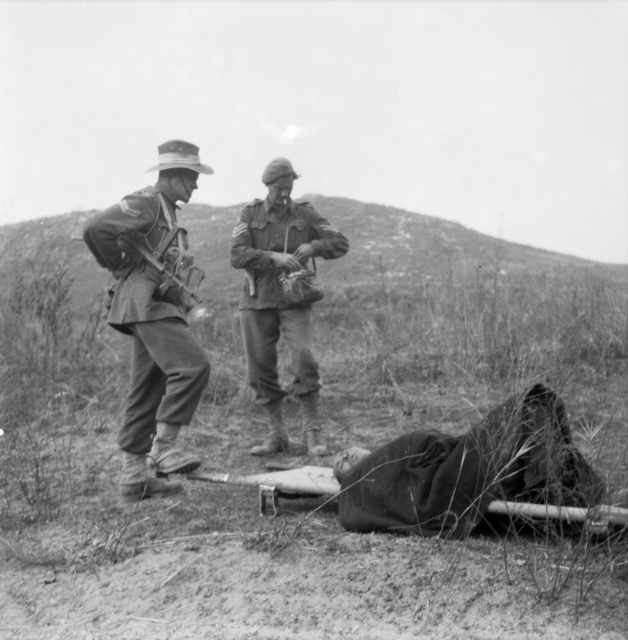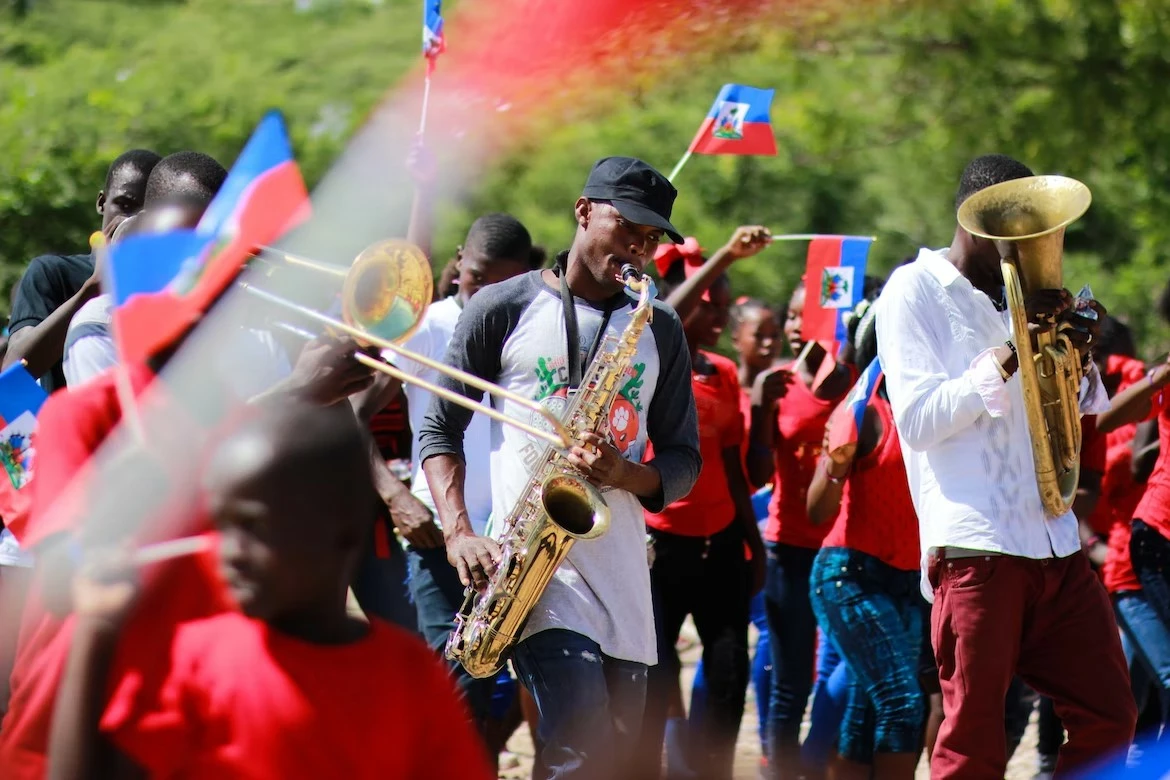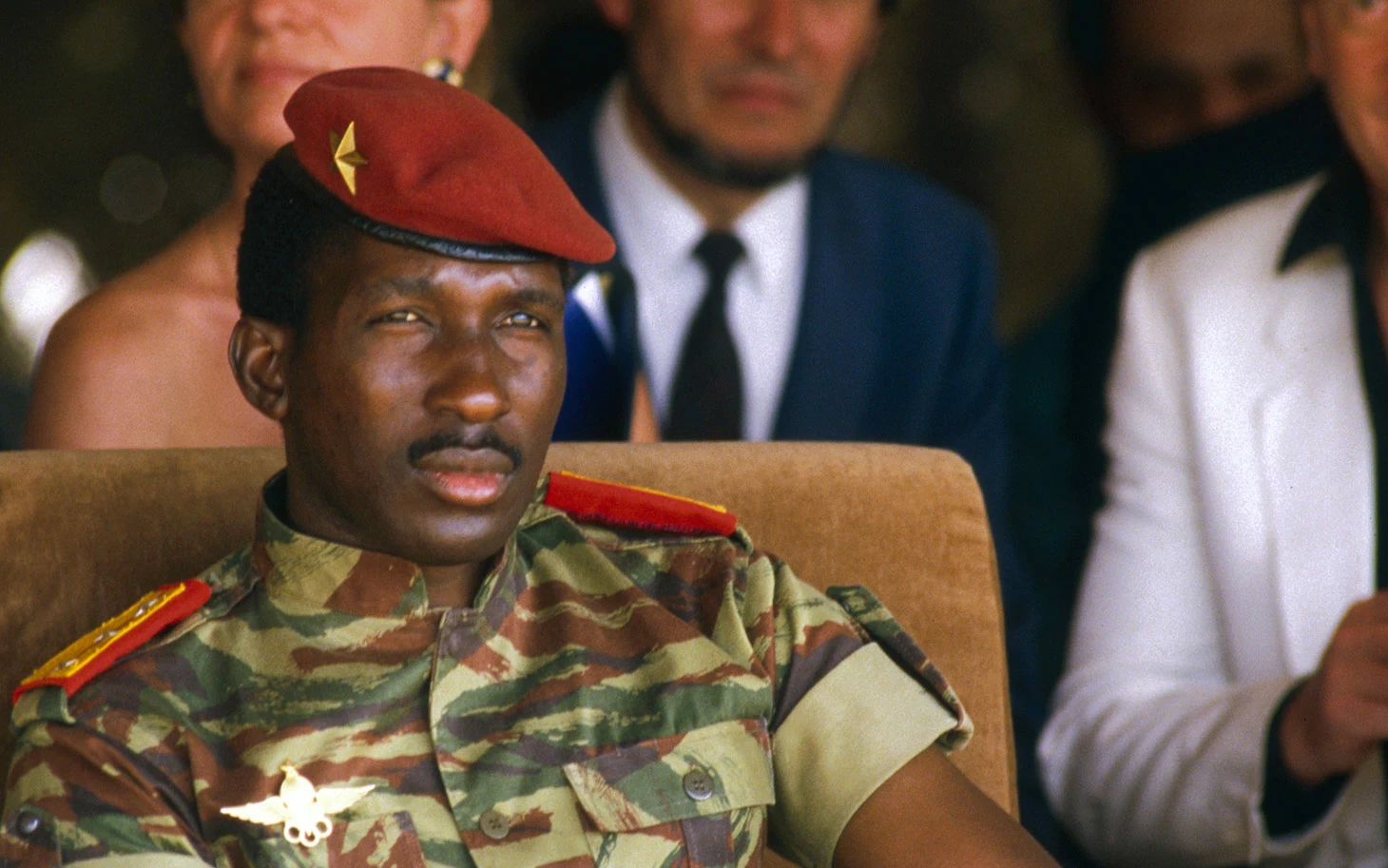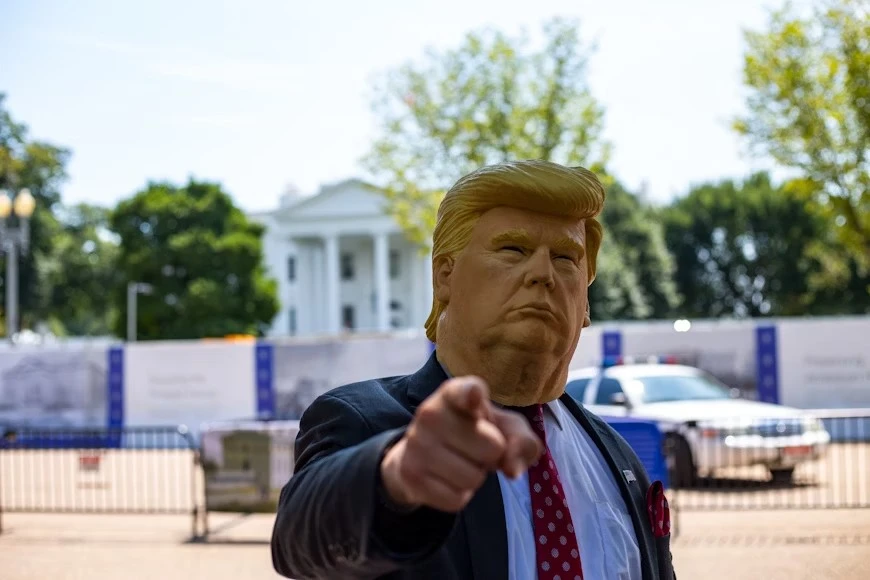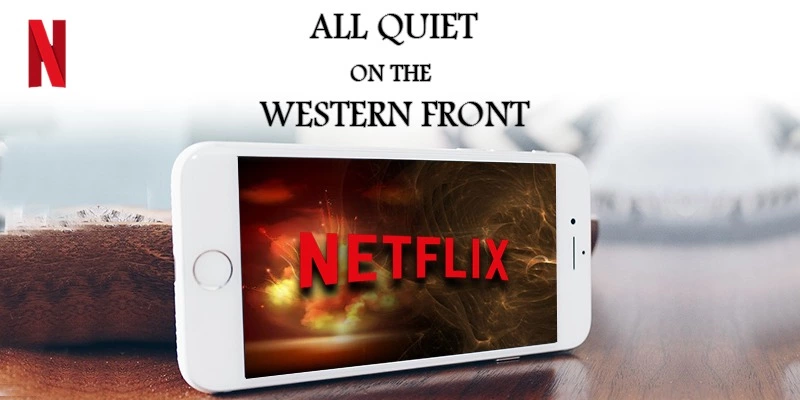I was only fourteen years old when I first saw Fidel Castro and his revolutionary cadres on television which at the time only transmitted black and white images. As a curious and intellectual youth in my own quiet way, I was both shocked and amazed by the man dressed in fatigues and sprouting a black beard. It was November of 1959, and the first cold winds were blowing along the streets of Haysville, Kansas. I was a young romantic then.
I attempted to organize my friends into revolutionaries, but I concealed it within the sport of running in the late evenings, telling them “we must prepare for war”. Never did I even mention what kind of war, although my comrades thought I meant a war with Russia which was then the Soviet Union. I did not speak to them about a revolutionary war in the Marxist-Leninist sense of a class war or what is known as a National War of Liberation. I kept it subtle and never mentioned Fidel Castro’s name, but I did talk to my running comrades about the bearded men riding on tanks through the streets of Havana. We were excited and amazed about such an event in our lives, although we did not understand the significance of it. And, perhaps, even into adulthood, we never fully understood the significance of the Cuban Revolution as we lived a mostly sheltered life in capitalist America, and all of us would have to learn the hard way the meaning of oppression and imperialism.
As I write about this in the summer of 2024, during the XXXIII Olympiad, branded by the world media as the Paris Olympic Games, I am taken back in thought to the ancient Athenian period of imperialism, when city-states under the guidance of Sparta revolted again and again against the callousness and brutality of wars by the elite Athenians…the elite of the United States and the state of Israel are not unlike the Athenian oligarchy. It is not my ambition to write a history of the Cuban Revolution or a sophisticated appraisal of Fidel Castro’s leadership, so much as it is to reflect upon how both of these two subjects have influenced my life. This is a personal remembrance of a monumental period in history during my lifetime that I hope will be remembered as a testament to a small nation-state’s courage against an insidious imperial power, the United States of America.
As I matured out of my early teenage years, my concept of history changed, and therefore so did my interpretation of the man and revolutionary leader, Fidel Castro and the essence of the Cuban Revolution. As I looked back into the history of other revolutionary epics and found that although the Cuban Revolution and its leadership were unique, there were also parallels that could be drawn from former periods of unrest as if there were a link or a thread that one could see as the cause of a historical event. For as Polybius wrote on his history of Rome, “From this I conclude that the best education for the situations of actual life consists of the experience we acquire from the study of serious history. For it is history alone which without causing us harm enables us to judge what is the best course in any situation or circumstance”.
It was from this thread of understanding a historical process that I observed the Cuban Revolution and the Cuban Revolutionary leadership with a serious and discerning eye. I studied The Expedition of the Thousand (Italian: Spedizione dei Mille) led by the Italian Giuseppe Garibaldi and his 1,000 revolutionary volunteers against the House of Bourbon. Garibaldi and his volunteers ultimately defeated the Spanish forces that controlled the Two Sicilies, thus unifying them with the Kingdom of Piedmont-Sardinia in the years 1860-1861, and creating for the first time in history a united Italy. I could not help but think of Fidel Castro with his small force of Cuban revolutionary volunteers sailing from Mexico to encounter the Batisa regime.
In November 1956, the Castro brothers with their small contingent of Cuban volunteers embarked from the port of Tuxpan, Veracruz in the boat Granma and crash-landed near Los Cayutand, where they were ambushed by Batista’s army forces, inflicting heavy losses on the revolutionary cadre of eighty-one men, with only 19 men surviving the harsh ordeal. Eventually, Fidel and his brother, Raúl Modesto Castro Ruz along with the other revolutionaries, including the Argentinian doctor and revolutionary, Che Guevara, and the brilliant tactician Camilo Cienfuegos were able to reach the Sierra Maestra mountain range, set up an encampment and eventually unify themselves with the urban guerrilla forces in Havana. Ultimately, they defeated Batista’s forces piece-meal.
Fidel Castro did not have the powerful forces that Garibaldi was able to muster when he and his army sailed from Quarto al Mare near Genoa and landed in Marsala, Sicily. What they do share in common in their military expeditions and revolutionary insurrections was that both exhibited a forceful charismatic leadership and both men from different epics were able to unify their people torn by different class interests and nationalistic passions. When I saw the painting “Giuseppe Garibaldi During the Landing of the Thousand at Marsala” by the painter, Gerolamo Induno, I could not help but reflect on Fidel Castro’s landing at the ocean waters near Los Cayutand, and how he did not romantically wave a flag as Garibaldi is depicted in the painting by Induno. Instead, along with the others he waded through water and gunfire to escape the entrapment and lived to fight again. There is nothing romantic about death and the tribulations of revolt.
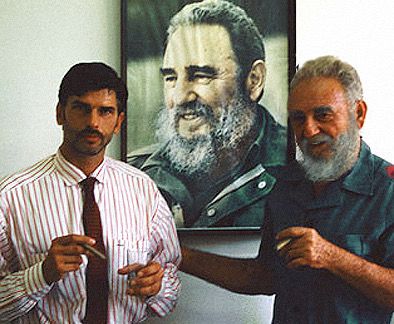
In another essay I wrote, entitled “AN INSTRUCTIVE STUDY OF CUBAN GUERRILLA WARFARE” which was published by The International Magazine in 2023, I went into some detail about the military aspect of the Cuban Revolution and it creative accomplishments and failures. Therefore, I will not bore the reader with another analysis of military theory regarding the Cuban Revolutionary insurrection period. Instead, I will remark on other aspects of the Cuban Revolution that historians are reluctant to write about and would rather pass over in silence. For instance, there is the matter of self-criticism that the Cuban revolutionary leadership, being human would have rather ignored. However, Fidel Castro to his credit, did rise to the occasion to face such an issue, for instance when it came to the economic well-being of the Cuban people and the inequality that still prevailed under his leadership and that of the Cuban Communist Party. In a speech entitled “Cuba’s Self-Criticism” that was read out by Fidel Castro Ruz, the nominal leader of Cuba, on July 10, 2007, to The National Directorate of the UJC (Communist Youth League) in which he admitted the following shortcoming of the Cuban economy:
On specific economic matters, I think that in every country, most people are unaware of everything. It is inescapable to know why the cost of oil is climbing; last Monday the price reached 77 dollars a barrel. Why the prices of foods are increasing, such as wheat and others which must be imported because of climate related problems; if the cause of their increase is permanent or short-lived. Not all workers receive the incentive of convertible pesos, a practice that became generalized in a large number of companies during the Special Period, without always fulfilling the minimum committed requirements. Not everybody receives convertible currency from abroad, something which is not illegal but which at times creates irritating inequalities and privileges in a country that does its utmost to supply vital services free of charge to the entire population. I do not mention the juicy profits being made by those who transport people clandestinely, nor the wathey would fool us by changing the US bills into other currencies in order to avoid our response measures against the dollar. The real and visible lack of equality and the lack of pertinent information gives way to critical opinions, especially in the neediest sectors.
Fidel Castro had to admit that not even his own personal leadership could stop the economic graft which can be called bribes that existed in the Cuban socialist bureaucrats and their government bureaucracies, and which undermined the progress of equality for the Cuban people. He also knew that other corruptions began earlier on within the very center of his military apparatus. As, one example, he had General Ochoa executed on July 13, 1989, by a firing squad along with three senior officers of the Ministry of the Armed Forces and Ministry of the Interior (MININT), after a Cuban military court convicted the military entourage of drug smuggling treason. There exists in all revolutionary nation-states the seeds of former illicit behavior of past regimes. It takes years, if not decades, to eradicate such behavior, and during these long periods of time, it is the ordinary citizen who suffers the consequences of such treasonous and criminal acts.
A process of necessary economic and social reforms were initiated by Raul Castro Luz after the death of this brother, Fidel Alejandro Castro Ruz who died in November 2016, and which also initiated a progression toward a more modernized Cuba. This is still an ongoing process today, and could bring about greater stability, unless impeded by an internal coup or a United States military-led invasion. As the Reuters press acknowledged in 2018, “President Raul Castro’s efforts to modernize Cuba's Soviet-style centrally planned economy have borne mixed results, with some initiatives moving forward, others stalled and still others either scuttled or yet to begin. The effort can best be viewed as building on policy changes Cuba initiated after the fall of the Soviet Union, for example allowing foreign investment and some mom-and-pop businesses.
Late President Fidel Castro termed these changes "concessions to the enemy" while Raul Castro has cast them in a more positive light and said they are an indispensable part of Cuba’s future. The ruling Communist Party says the process has been harder than expected and most of the reforms, which were first adopted at a Party congress in 2011 and then ratified in 2016, are still a work in progress. After Raul Castro retired in April 2021 as the head of the Cuban government, he handed over the reins of power to Miguel Mario Díaz-Canel y Bermúdez, a Cuban politician and engineer who is the 3rd and current First Secretary of the Communist Party of Cuba.
The continuous sanctions and economic blockades by the previous and current American presidential regimes has the potential to destroy the legacy of the Cuban Revolution. It is the barbaric and darkly insidious behavior of the various United States regimes in its attempt to destroy Cuba and the efforts of the Cuban Revolution, to enslave the Cuban population in economic terms, and to make Cuba nothing but a chattel of the American imperial experience. However, the Cuban government bureaucrats also bear responsibility for some of the self-destruction of the Cuban economic apparatus, and as Honoré de Balzac wrote about such people, “Bureaucracy is a giant mechanism operated by pygmies.” It is my final observation that the importance and the inspiration of the Cuban Revolution will endure in history.
As I am a military historian and theorist my overall observation of economies and nation-states are limited, therefore I would like to proceed further into my personal perspectives on the Cuban leadership and Cuban Revolution. Do understand that my own views are very subjective and not scientific, politically-speaking, but it is, nonetheless, important for me as a historian to leave some kind of testament on such a vital history as that of the nation of Cuba. Regarding the nature of Democracy and authoritarian leadership which can be found embedded in Bonapartism, it is essential for me to write about Fidel Castro and whether he sincerely attempted to instill Socialist Democracy in Cuba or if he actually introduced a Bonapart legacy both consciously and unconsciously.
One public policy institute in the United States wrote the following assessment about Fidel Castro. “Fidel, as most Cubans refer to him, was a hero to some and the region’s worst tyrant to others. He was the source of great pride and gratitude for those who felt indebted to him for their education, health care and peaceful way of life, yet a source of great pain and anger for those whose lives were shattered by arbitrary incarceration, family separations and lack of freedom under his regime. His death provoked lively celebrations in Miami’s Calle Ocho (Eighth Street) among enthusiastic Cuban exiles, as well as a deep sense of loss and mourning among fidelistas on the island who compared their grief to losing their father”.
To understand to some extent the personality of Castro is to understand his birth, his early education and eventual maturity as a revolutionary. Fidel Castro was born in Birán, Oriente Province, the illegitimate son of Ángel Castro y Argiz, a land-owning farmer, who formally came from a poor family in Galicia, a province in northwest Spain. In 1895, his father was conscripted into the Spanish Army to fight in the Cuban War of Independence and the ensuing Spanish–American War of 1898, what could be called a “small war” in the Clausewitzian term, the former poor farm laborer and soldier emigrated to an independent Cuba eventually purchasing land, marrying, then acquiring a mistress by the name of Lina Ruz González, a household servant of Canarian descent who was twenty-seven years his junior.
This family history informs us that the class roots of Fidel Castro was that of poor immigrants, and that his family only moved up through the class echelon. According to historical sources, although Fidel Castro father’s business ventures prospered through the acquisition of the purchase of land, he ensured that Fidel grew up alongside the children of the farm's workforce, many of whom were Haitian economic migrants of African descent. This experience, Castro later related, prevented him from absorbing "bourgeois culture" at an early age.
I can understand this class background, as my own father was a former sergeant in the United States Armed Forces during World II, and eventually when he came back from the war, after a short period of years in Kansas, he would go to Texas and become a labor contractor or what is termed in Spanish a “patron” or “jefe”. I found myself among Mexican braceros and other farm laborers from the Philippines and Guam, and it was this experience and these relationships that kept me from being totally absorbed into the Anglo-American bourgeoise although I was given a formal education in their dominant culture.
According to other sources, which are too numerous to mention, the young Fidel received his first education by a tutor in Santiago de Cuba. He then attended two middle class boarding schools before being sent to El Colegio de Belén, a school run by Jesuits in Havana and where he would learn the discipline of scholastic pursuits. In 1945, Castro began his rigorous study of law at the University of Havana, where he became politically conscious in a more worldly sense, and it was in this first baptism of student politics that he became an anti-imperialist and a critic of the United States’ involvement in the Caribbean. Eventually, Castro would become involved in the university's violent gang culture, and that was motivated by the often times sectarian power struggles within the various student political groups. In 1947, he took part in a quashed attempt to overthrow the military junta of Rafael Trujillo in the Dominican Republic.
Eventually, he returned to student politics in Cuba. It was during this maturing period of political agitation that Castro was involved with violent political demonstrations in which the student protesters fought with riot police, during which he became more increasingly left-wing in his views. Fidel Castro had not yet developed into a mature Marxist Leninist leader, and that final process would take place years later. Many historians have yet to understand the exact timing or year he actually became a committed communist and not just a Cuban nationalist leader.
What is important to note is that his illegitimate birth did play a role in his personal and political anger, and that his persona as a revolutionary allowed him the freedom, like that of other social outcasts, to protest against the subtle decimations that he had to endure in his youth. It was the genuine political agitator in Fidel Castro that gave a voice to others like him who sought democratic equality in their lives.
However, this does not mean that Castro did not have his overbearing side. Some would say he had bullying behavior. He was so filled with the need to convey his opinions in conversations or in public speeches that he was extremely long-winded. I remember my mother once saying to me in a phone conversation, “Why does Fidel Castro talk on and on, I get so tired of it, I eventually stop listening to him and want to sleep!” I remarked dryly, being careful of what I would say to a self-educated intellectual, “Mother, I understand what you mean…your criticism, I mean, Fidel talking for hours in public. I attempt to listen to the most important part of his speeches, and then I go on to other things” and then I added humorously “I remember, mother, seeing a photo of a Cuban soldier sleeping on the barrel of his upheld rifle as a sentry during one of Fidel’s speeches, and I burst out laughing!” That remark about Castro’s robust but lengthy speeches seemed to placate her. The irony was that she was as long-winded in conversation as Fidel Castro.

I should add in passing that after Raul Castro Ruz came to hold the reins of power in Cuba, my mother told me how she admired the man for attempting needed reforms, while my brother, a committed bourgeois, was also able give some praiseworthy remarks about Raul. Such was the division in my own family about the Castro brothers, with my sister being the reactionary concerning both the Castro brothers and the Cuban Revolution. We rarely talked to each other about such politically sensitive subjects, and as I noted at the beginning of this essay, my personal perspective about Fidel Castro and the leadership in socialist Cuba had its twists and turns as did the dialects of my own family with the justices and injustices of history being unresolved in the end.
The above written observations about Fidel Castro, which is simply miniscule in nature, brings me however to the question of dissent amongst the population of Cuba who disagree with many of the Cuban leader’s political statements and decisive political decisions that affected the ordinary Cuban citizen as well as the Cuban intellectual community. Fidel Castro did not suffer fools gladly, and that especially included bourgeois Cuban dissenters or political Cuban idealists that yearned for the so-called democratic-capitalist values that are part of the political fabric of the United States. Castro was not shy, shall we say, about having dissents destroyed who openly or covertly attempted to undermine the Cuban government or who allied themselves with the imperialist American system of government which sought to continually to create a hegemonic world order that mirrored its own perfidious and corrupt way of living.
Fidel Castro and other legitimate members of the communist ruling class were capable of incarcerating, intimidating or even killing their political opponents, and thus will be remembered for such procedures which are only natural in any class war.
In 2003, The Irish Times published an article in which it was written -
Latin America's revered leftist intellectuals, one of Castro's few sources of moral support since the collapse of the Soviet Union, are abandoning him in horror. In the last six weeks, Cuban authorities have executed three men who hijacked a ferry in an attempt to reach the US and rounded up 75 dissidents, sentencing them to prison terms of up to 28 years. Mexican novelist Carlos Fuentes has called Cuba a "suffocating dictatorship". Uruguayan author Eduardo Galeano, considered a friend of the Cuban revolution, condemned long prison terms and the death penalty in an article titled "Cuba Hurts". But Colombian Nobel Prize-winning writer Gabriel Garcia Marquez, an old friend of Castro's, refused to join in criticism of the crackdown despite being challenged to do so by US writer Susan Sontag.
What one needs to understand or surmise with a steady eye on liberalism and class interests is the fact that Fuentes and Galeano, along with the photographer critic, Susan Sontag, were not communist party members. They were leftist intellectuals who like most creative people of that ilk have their own political contradictions and are loathe to make them public, but find it easy to criticize others whom they find politically disappointing. As Hemingway wrote in For Whom the Bell Tolls, "There are many who do not know they are fascists but will find it out when the time comes." Carlos Fuentes, Eduardo Galeano and Susan Sontag were not fascists, but they were disappointed leftist intellectuals and for some that leads to fascism. Later, in the same essay, it was noted, “But Cuba's toughest crackdown on dissent in decades has been a snapping point for other backers of Castro, notably Portuguese Nobel Prize-winning novelist Jose Saramago. "From now on, Cuba can follow its own course, and leave me out," Saramago wrote this month. Cuba has "lost my trust, it has damaged my hopes, it has defrauded my illusions".
I am a great admirer of Saramago’s novels and have read most of them, my favorite being “Blindness”, as I consider it the premier novel of anti-fascism in the modern literary genre. However, I also am aware that besides the late Saramago being a member of the Portuguese Communist Party, he was also a self-professed Libertarian, which says much about his personal individualistic nature and the disappointment of his once so-called illusions. It is ironic that the Cuban government or Cuban Communist Party sent a majestic funeral wreath to his wake. Such are the raw lessons of history and the fickle and contradictory political protocols regarding dissent.
Let us return to the concept of Bonapartism as revealed in the personality or political behavior of Fidel Castro. It was the Italian Marxist philosopher, Domenico Losurdo who revealed the contradictions in the Cuban leader by stating -
Naturally, the long duration of the Second Thirty Years’s War [World War II] as well as the expectation of world revolution (itself generating a climate of mobilization and war) could also stimulate Bonapartist tendencies within the Communist world. We may take the case of Fidel Castro’s Cuba, with the country’s military political and economic encirclement, the threats; and the attempts actually made, of invasion, the embargo (a war measure); the permanent state of emergency imposed from outside-all this objectively pushes towards the personalization of power. But the properly Bonapartist tendencies are also countered by the reference to a well-defined ideology and political programme, and to the party based on them… It cannot be denied that Fidel Castro exhibited serious traits of Bonapartism, as it cannot be denied that it was the United States with its intolerable regime of wanton control throughout the world, including the Caribbean hemisphere that continued to push Castro towards a personalized control over the Cuban Communist Party and thereby the Cuban Government for survival by any means possible.
However, Fidel Castor was not alone in his political isolation for one might look back at the political power hold that was also tightly grasped by Stalin and Mao for similar reasons and that was to prevent the destruction of socialist democracy within their given countries or nation-states.
In closing, I would like to write a short observation of Fidel Castro as a baseball player, thus an athlete in his own right, and how I deem such a rite of passage in his youth as having influenced his understanding of political power and the necessity for being steadfast in competition. In a compelling and interesting commentary on Fidel Castro and his own personal history with the American game of baseball, the news outlet, Aljazeera wrote the following commentary -
Hundreds of Cuban students – shouting slogans against then president Fulgencio Batista – storm a stadium in Havana, interrupting a Cuban league baseball game. Moments later, a young law student by the name of Fidel Castro grabs the ball and takes to the mound. After throwing out a few practice pitches, he faces off against future American Major Leagues’ slugger Don Hoak, before being kicked off the field. The year was 1951, eight years before the Castro-led Cuban revolution would force Batista from power. And while it makes a compelling story, the oft-repeated and lionised baseball standoff never really happened.
While he may not have been an outstanding player, El Comandante, like many Cubans, shared an affinity for baseball.
What Castro did, however, was transform Cuban baseball dramatically by suspending the country’s revered winter league in 1961. At the time, Castro declared baseball an amateur affair – outlawing professional sports of any kind, in fact – and created the National Institute for Sports, Physical Education and Recreation (INDER) to regulate athletics in the country… “Anybody who truly loves sport and feels sport has to prefer this sport to professional sport by a thousand times,” Castro said in 1964 about sports in post-revolution Cuba.
I would like to add a special anecdote about Castro, the former baseball athlete, was able to fuse his love for sports and his revolutionary aspirations with the following commentary -
On July 24, 1959 he put together an exhibition game between his own pickup team Los Barbudos (“The Bearded Ones”) and a military police team, playing just before a Red Wings-Sugar Kings game. Castro pitched two innings and struck out two. The next night the Red Wings and Sugar Kings played again, and the game went late. When it hit midnight -- making it July 26, which is the anniversary of Castro’s July 26, 1953 attack on the army barracks in Santiago, which gave rise to the name of his political movement -- the crowd went nuts in celebration, with many fans firing guns into the air. Rochester third base coach Frank Verdi and Havana shortstop Leo Cárdenas ended up with flesh wounds.
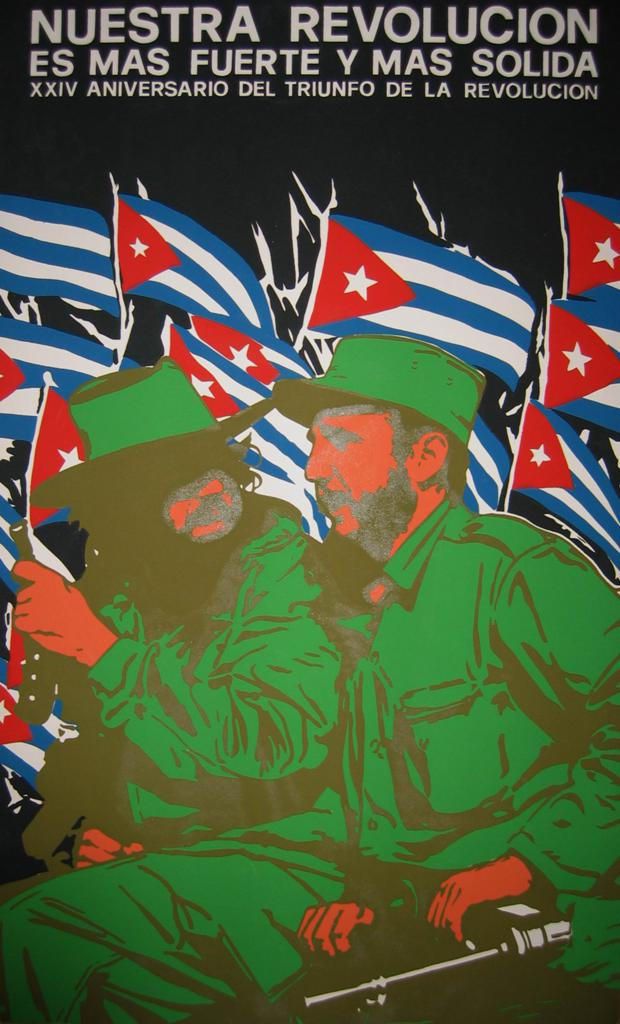
It is factual that Fidel Castro did play baseball as pitcher in his college days at the University of Havana. He was not a great pitcher, but he did love the sport. I feel the exuberance he felt for baseball gave him an emotional as well as a physical outlet and the discipline that would help him in many years to come, contributing not only to a long life, but to the understanding of competition and how to beat an opponent. There was an athleticism in the character and physical prowess of Fidel Castro that he exhibited throughout most of his life. Perhaps, it was this most personal and endearing quality about the man and the revolutionary that amplified a more human Fidel Castro.
Before I began to write this essay on Fidel Castro and the Cuban Revolution, I watched the live streaming event of the 1500 meter run by the men middle distance runners at the Paris Olympics. An American runner won the ambitious and prestigious Olympic run, while his compatriot took third. A Scotsman took second who was touted to be the possible eventual winner of the race, but this did not happen. The American media, including the American runner who won the race began their usual boasting, with the runner raising his arms and hands into the air with an arrogant manner and a snide look on his lean Anglo-American face. It was then that I thought to myself that American Olympians are nothing but foot soldiers for American imperialism in sport events. Later, after looking back into the history of Fidel Castro’s love for sports and my own love affair with soccer, after being a distance runner at Kansas State University in my youth, I realized something that had never crossed my mind and that was the death of a revolutionary wrapped in his nation’s flag is far more profound that that of an Olympian flaunting his national flag like a fledgling wrapped in a cloud as he walks around an oval track.
Fidel Castro was a rarity among men, an Olympian of both good and not-so good qualities, but is that not what makes a great leader human? And is that not something that is rarely found among the shallowness of the Olympians that think they have left behind a legend for the ages?
Fidel Castro whether one admires him or not, left behind a legend of political endeavor that is rare among men.
Editor's Note:
The views and informations expressed in the article are solely those of the author and may or may not reflect the views of The International. We believe in providing a platform for a range of viewpoints from the left.
"The International" belongs to you.✕
Please take a moment to read this. We apologize for any interruption, we want you to know "The International" seeks your valued support at this time. We've proudly served as a pioneering online platform, delivering ad-free media content. With only 2% of our readers opting for a subscription, any contribution you choose holds immense significance—whether it's an annual fee of $25 or a monthly payment of $2.5. — The "The International" Team, committed to providing you with enlightening perspectives. We want to highlight that this sum is even less than what you'd spend on a cup of coffee, yet it greatly aids in sustaining our efforts to perpetuate and enhance your esteemed initiative.
